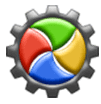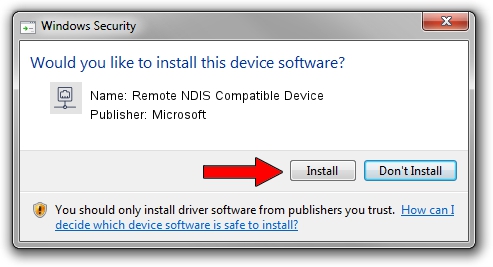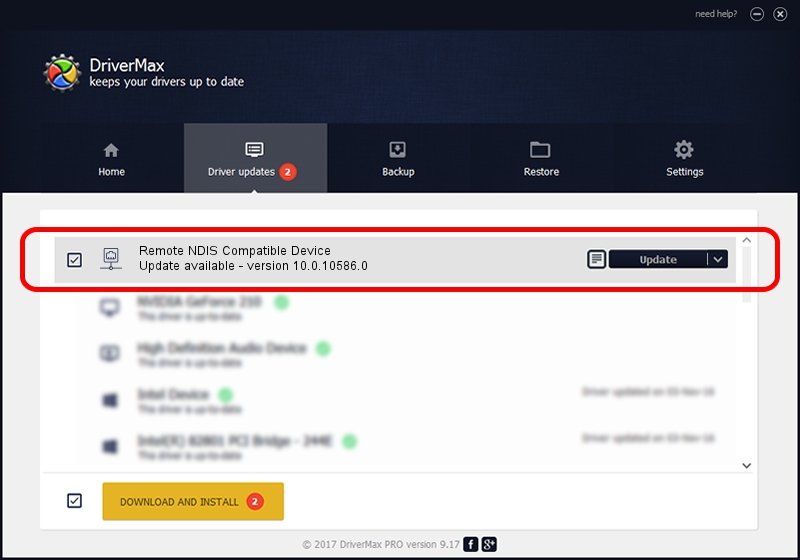
Advertising seems to be blocked by your browser.
The ads help us provide this software and web site to you for free.
Please support our project by allowing our site to show ads.
Home /
Manufacturers /
Microsoft /
Remote NDIS Compatible Device /
USB/Class_EF&SubClass_04&Prot_01 /
10.0.10586.0 Jun 21, 2006
Microsoft Remote NDIS Compatible Device how to download and install the driver
Remote NDIS Compatible Device is a Network Adapters device. This driver was developed by Microsoft. The hardware id of this driver is USB/Class_EF&SubClass_04&Prot_01.
1. Microsoft Remote NDIS Compatible Device driver - how to install it manually
- You can download from the link below the driver installer file for the Microsoft Remote NDIS Compatible Device driver. The archive contains version 10.0.10586.0 dated 2006-06-21 of the driver.
- Start the driver installer file from a user account with administrative rights. If your UAC (User Access Control) is running please confirm the installation of the driver and run the setup with administrative rights.
- Go through the driver setup wizard, which will guide you; it should be quite easy to follow. The driver setup wizard will scan your PC and will install the right driver.
- When the operation finishes shutdown and restart your computer in order to use the updated driver. As you can see it was quite smple to install a Windows driver!
Size of this driver: 2676 bytes (2.61 KB)
This driver was installed by many users and received an average rating of 3.5 stars out of 77074 votes.
This driver was released for the following versions of Windows:
- This driver works on Windows 2000 32 bits
- This driver works on Windows Server 2003 32 bits
- This driver works on Windows XP 32 bits
- This driver works on Windows Vista 32 bits
- This driver works on Windows 7 32 bits
- This driver works on Windows 8 32 bits
- This driver works on Windows 8.1 32 bits
- This driver works on Windows 10 32 bits
- This driver works on Windows 11 32 bits
2. Installing the Microsoft Remote NDIS Compatible Device driver using DriverMax: the easy way
The most important advantage of using DriverMax is that it will setup the driver for you in just a few seconds and it will keep each driver up to date. How can you install a driver with DriverMax? Let's take a look!
- Open DriverMax and push on the yellow button that says ~SCAN FOR DRIVER UPDATES NOW~. Wait for DriverMax to analyze each driver on your PC.
- Take a look at the list of driver updates. Search the list until you find the Microsoft Remote NDIS Compatible Device driver. Click the Update button.
- Finished installing the driver!

Aug 28 2024 8:11PM / Written by Daniel Statescu for DriverMax
follow @DanielStatescu


